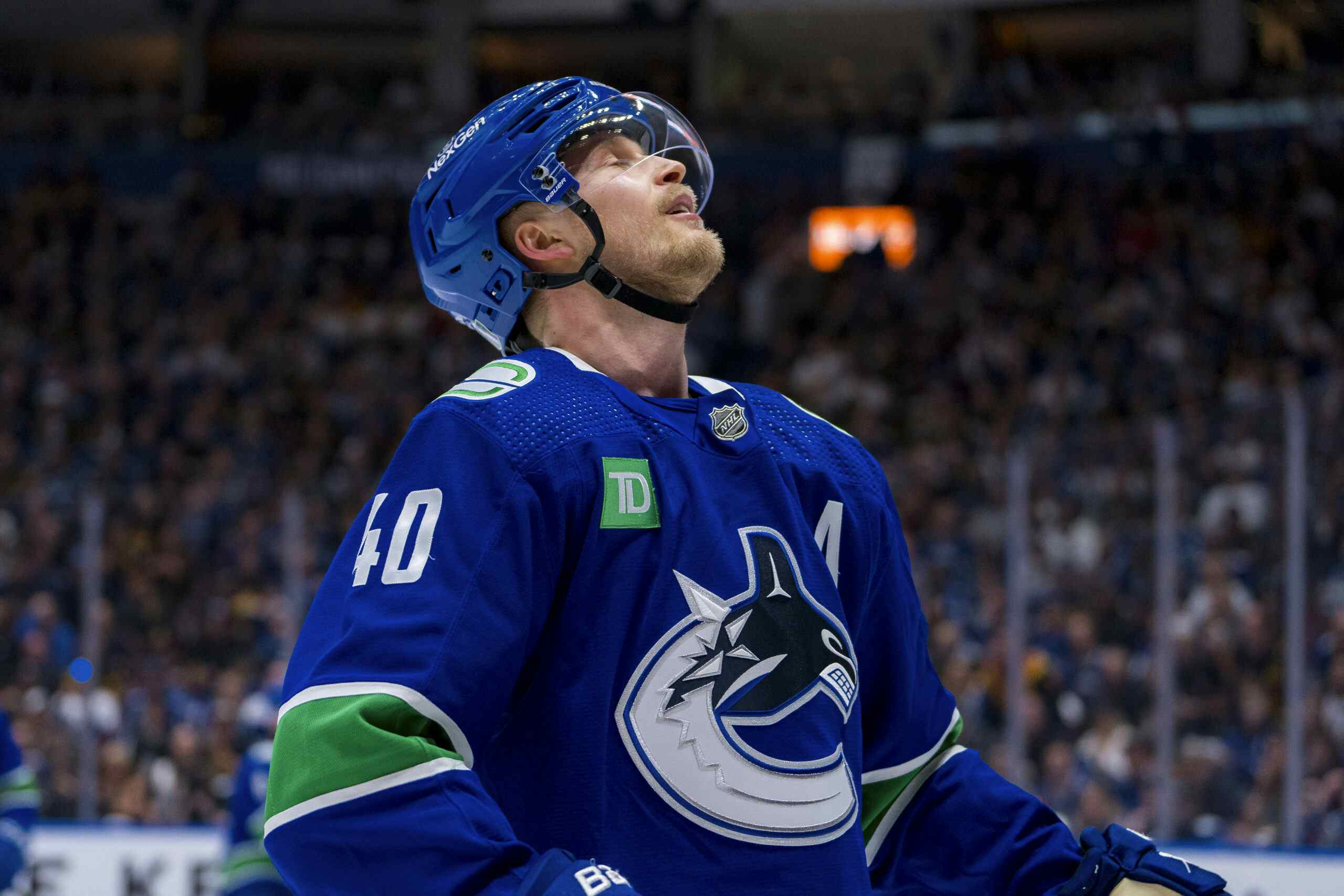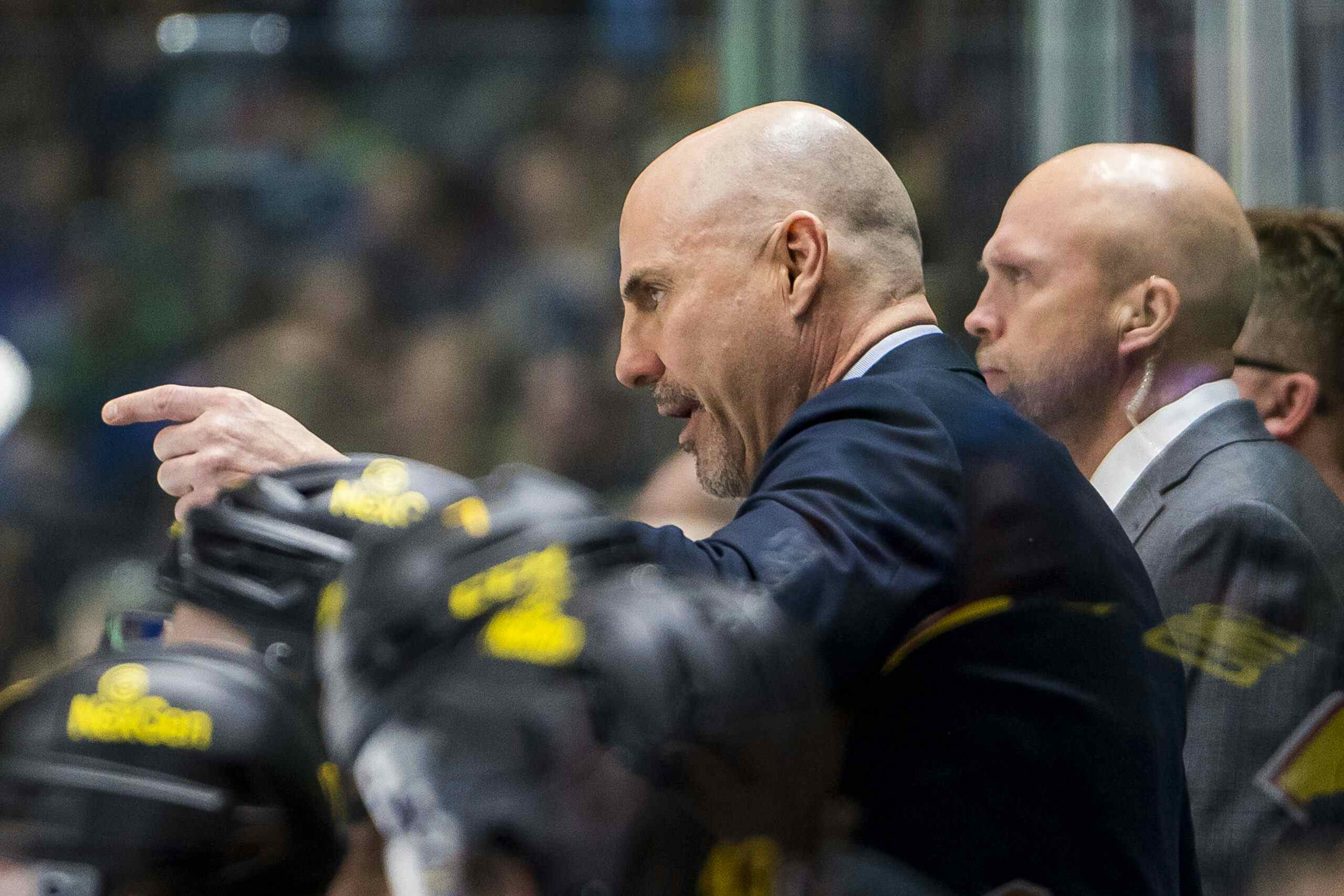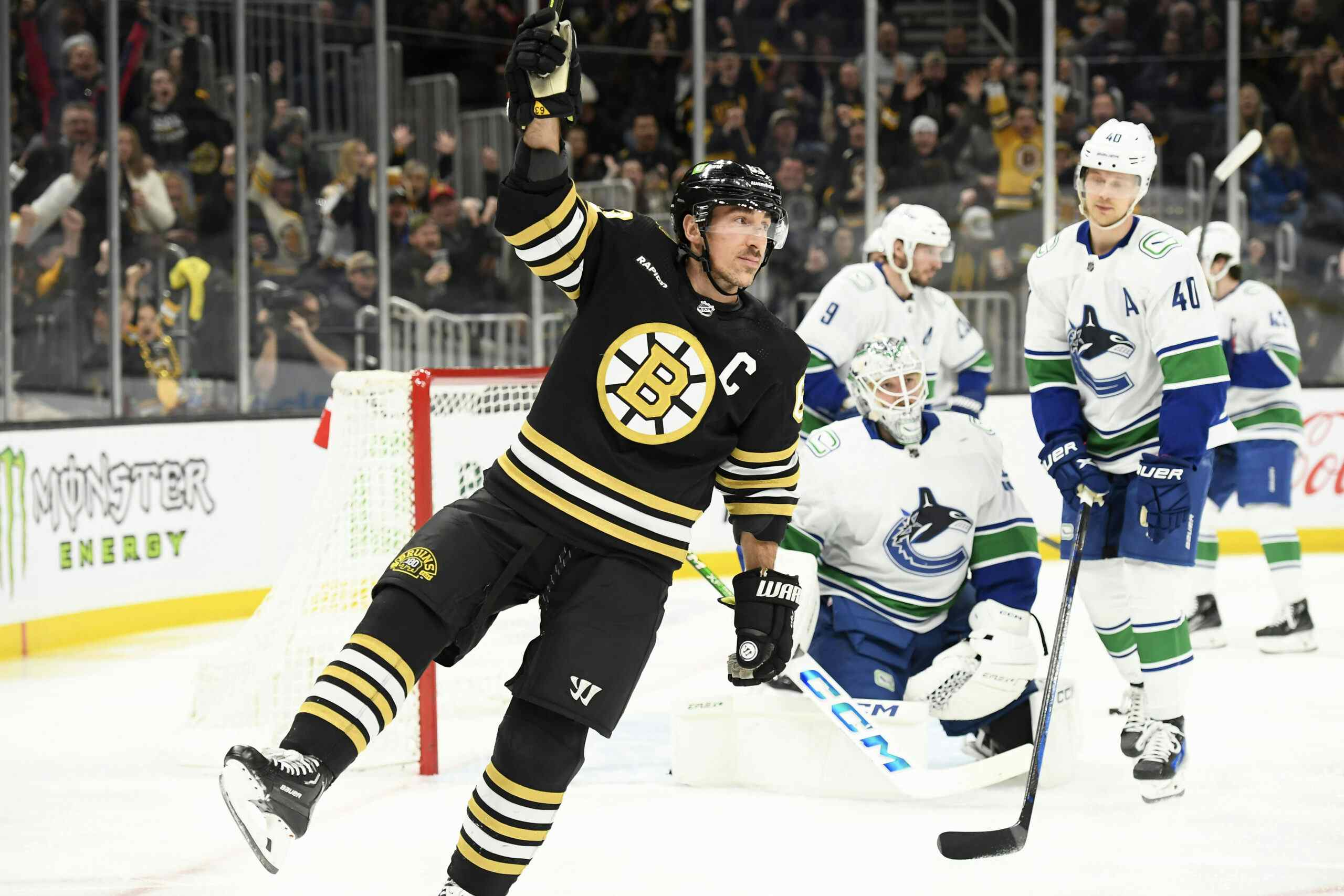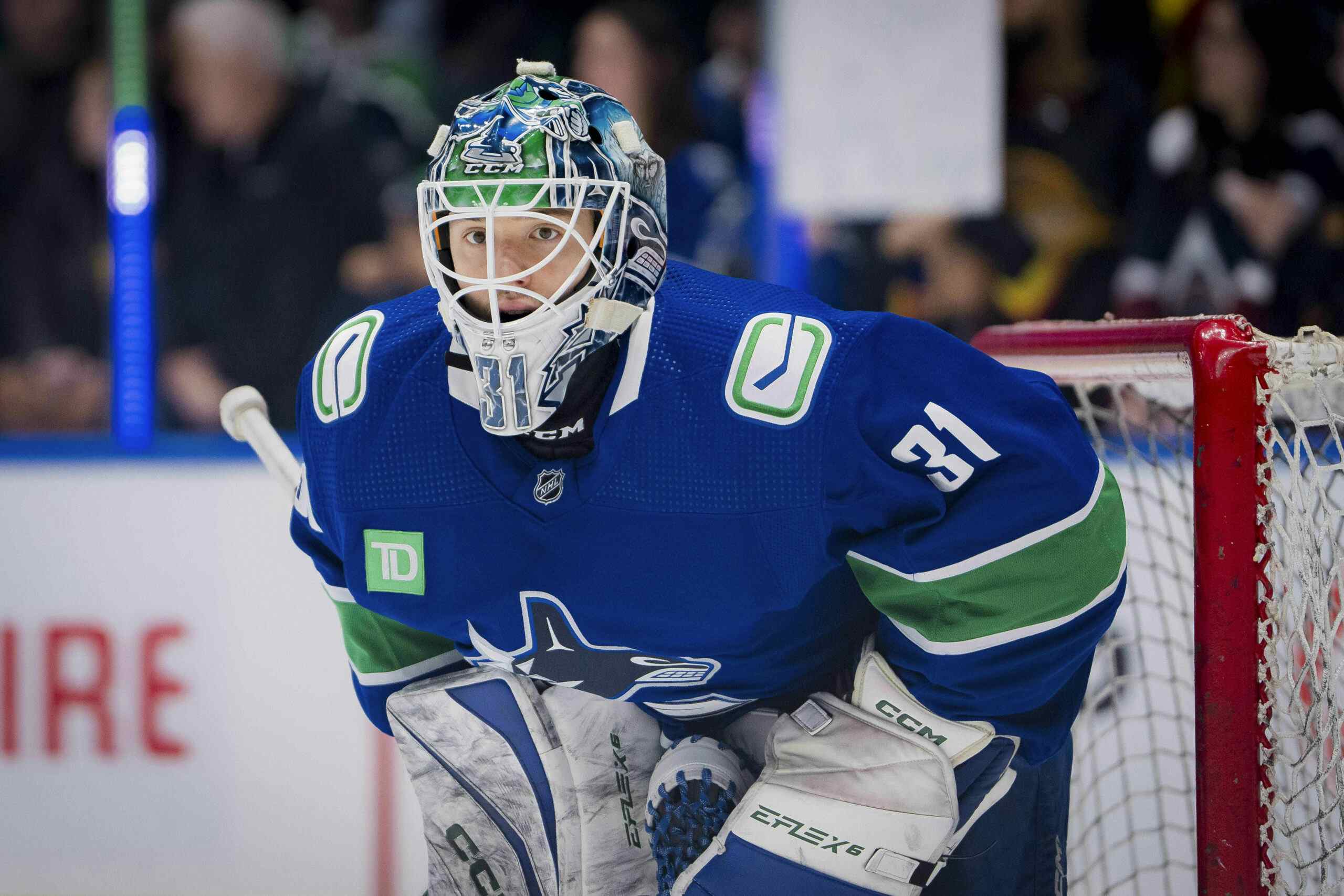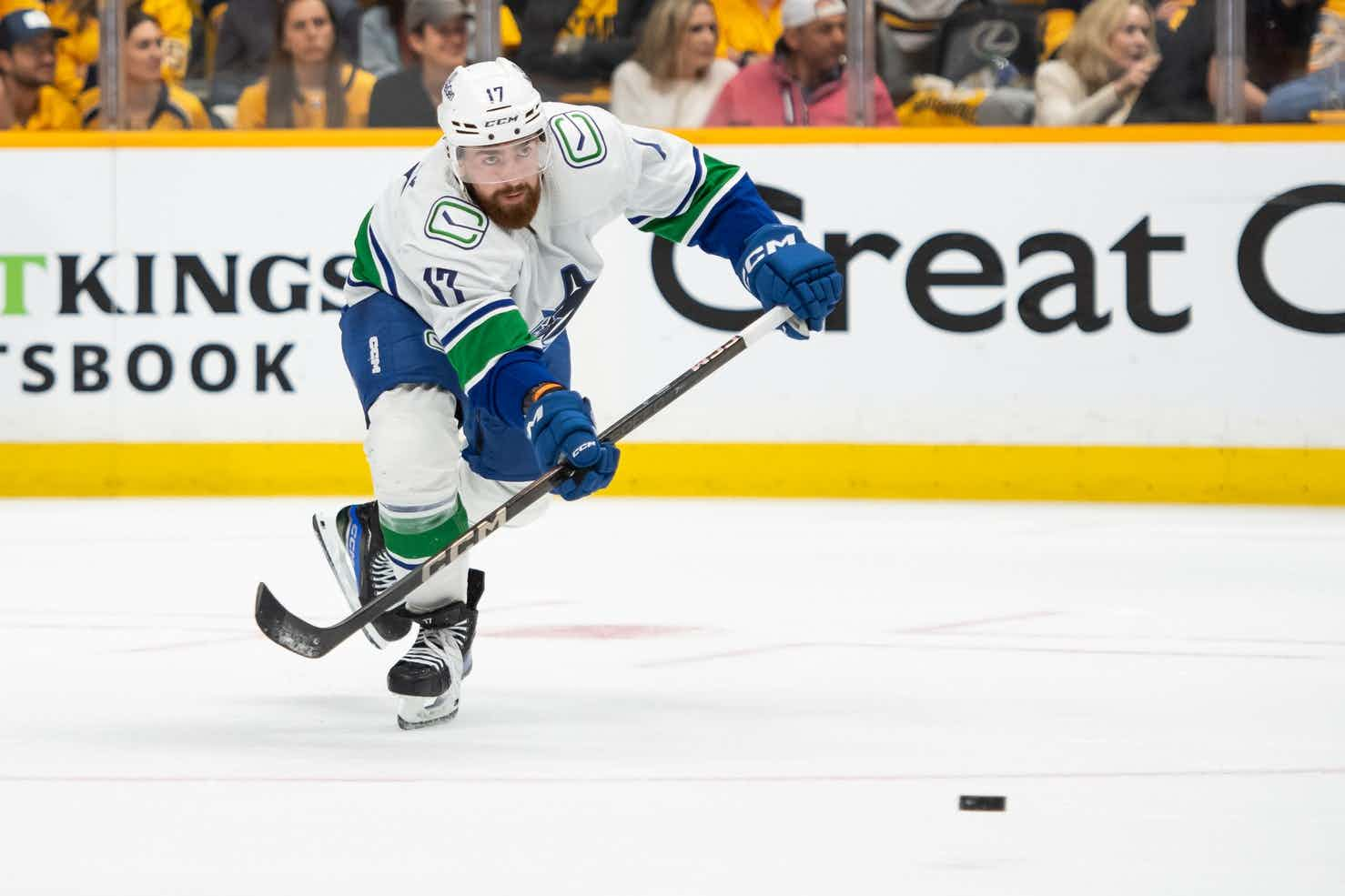Should the Canucks Be Worried About Losing Will Lockwood to Free Agency Next Summer?
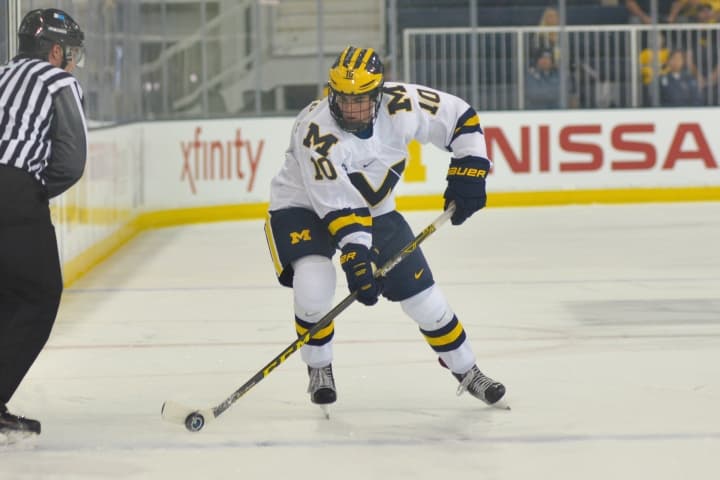
By Jeremy Davis
4 years agoNothing says mid-November like discussing the limitation dates of exclusive contractual negotiating rights for drafted NCAA hockey prospects. Right?
Actually, now that I think about it, that doesn’t make any sense, but here I am publishing my second article of the day on the topic, following this piece on Jack Rathbone this morning.
For his part, Lockwood’s return to topicality was brought on by his inclusion in Rick Dhaliwal’s new feature at the Athletic Vancouver, Dhaliwal’s Diary, in which he had this to say about the Michigan senior:
An NCAA source tells me that no shortage of NHL teams have noticed Lockwood’s play this season. His work ethic and character are big reasons why.But where is the fit in Vancouver? Where is Lockwood on the depth chart? These are things both sides have to figure out.
There’s more, but it’s behind the Athletic’s paywall, so I don’t want to divulge too much. Most of you probably already have subscriptions anyway, so go check it out.
The crux of Dhaliwal’s point on Lockwood is this: with the August 15th, 2020 deadline looming, should the Canucks consider trading Will Lockwood at the NHL trade deadline this season if they don’t think they can sign him?
As a refresher, Lockwood’s free agent eligibility as a college player is governed by Article 8.6(c)(i) of the NHL’s Collective Bargaining Agreement:
If a Player drafted at age 18 or 19 is a bona fide college student at the time of his selection in the Entry Draft, or becomes a bona fide college student prior to the first June 1 following his selection in the Entry Draft, and remains a bona fide college student through the graduation of his college class, his drafting Club shall retain the exclusive right of negotiation for his services through and including the August 15 following the graduation of his college class. The Club need not make a Bona Fide Offer to such Player to retain such rights.
Dhaliwal wasn’t the only one pondering this point, as I caught Matt Sekeres asking the same question last night on TSN 1040’s PM Drive show.
It’s a fair question, and I’d like to address it, but it takes one thing for granted: that the Canucks should be concerned about losing Will Lockwood to free agency next year. I’d like to explore that question first.
Will Lockwood’s Value
When Will Lockwood was selected 64th overall in 2016, we were a bit skeptical, with Ryan Biech stating the following with regard to the players left on the board when Lockwood was taken:
The only concern is that the Canucks skipped some players that have higher ceilings and potential for a diminutive forward that works really hard and is a ball of energy on the ice. Teams do need players like that, and he could turn into something, but passing over those other players is a bold move to get him.
Lockwood was taken one spot before Vitali Abramov and two spots before Adam Fox, both of whom have since played NHL games. And we can’t be accused of resting on hindsight alone: both Abramov and Fox were listed in our Best Prospects Left After Day One article at the 2016 draft. Abramov was actually ranked 21st overall during our countdown that year.
On the flip side, our rush to judgement on Adam Gaudette and Gaudette’s subsequent stellar second half in 2015-16 taught us a lesson in patience, especially when it came to players picked from the USHL (or USNTDP, in Lockwood’s case). Lockwood’s 20 points in 30 games the following year was a reasonably successful NCAA freshman season, but it was when he made the USA World Junior team in 2017 that his stock really started to rise in this market.
Unfortunately, it took a near immediate hit: Lockwood was injured during the World Junior tournament and has alternated between being out with injuries and playing through injuries ever since. It’s difficult to assess the degree to which the injuries (primarily to his shoulder) have hampered his ability to produce, but the result has been an output that is unfortunately subpar given his age. (Sample size alert)
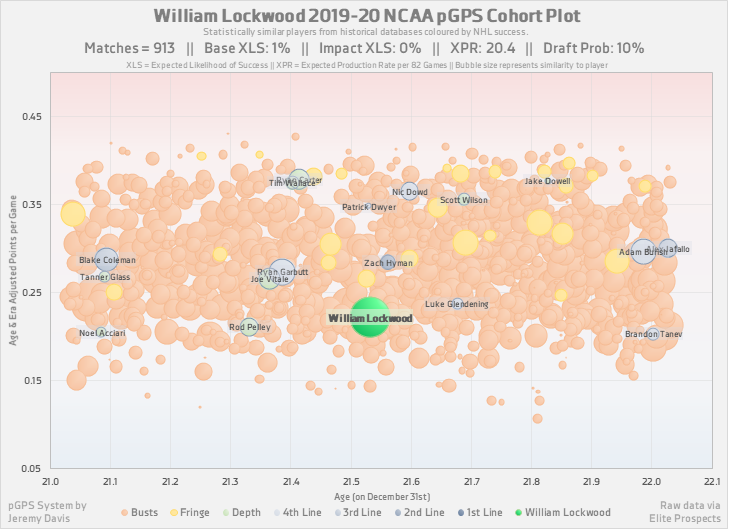
Lockwood’s best season was last year, in which he collected 31 points in 36 games, and so far this season he has just three points (all goals) in nine games. Now, in Lockwood’s defence, Michigan is bad this season, firmly in the NCAA’s bottom third. His three goals are tied for the team lead, for Pete’s sake.
Still, for a prospect to have a reasonable chance of NHL success, we’d expect well over a point per game by now. For context, Adam Gaudette, in his age-21 season, had 52 points in 37 games. Tyler Motte had 56 points in 38 games in his age-21 season, and he’s a moderately useful fourth line NHLer.
Overall, Lockwood is a very long long-shot to make the NHL.
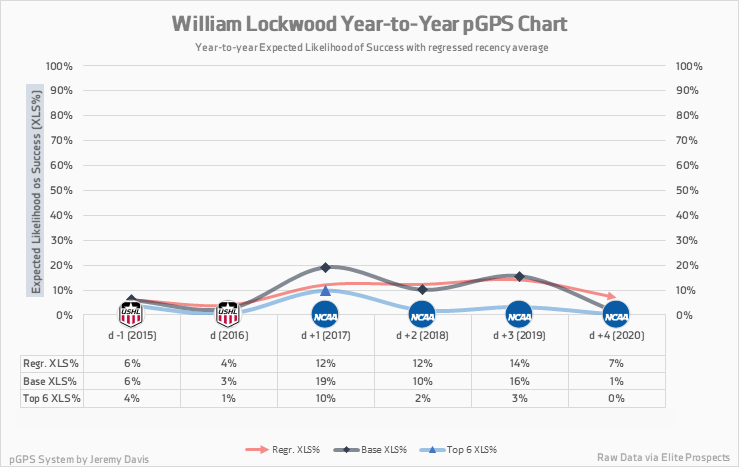
With all due respect to Will Lockwood, this isn’t the type of prospect that you lose sleep over not being able to sign.
Sure, if the opportunity presents itself, you might as well sign him and bring him to Utica – maybe he’ll surprise you. We can harp on the old asset management theme in which it’s always better to not let assets slip away for nothing, especially when they are still (to some extent) an unknown commodity.
But if the player won’t sign, because of lack of positional opportunity or some other reason, it’s a very manageable loss.
Lockwood as a Tradeable Asset
Now that we’ve done away with some of that concern, let’s get back to the other question.
Whether or not Lockwood is willing to sign with Vancouver is not something that we have reliable intel on. There is always concern of a rift when a player returns to college for their senior year, but Dhaliwal specifically mentioned that had more to do with Lockwood wanting to take on more of a leadership role this season (Lockwood is captaining the Wolverines this year, so a leadership role he has certainly been given). The other sticking point that Dhaliwal implied is the positional opportunity in the organization. As a winger, things looked pretty rosy for Lockwood a couple of years ago, but the Canucks have really stocked up their depth in that regard in the last few years, and Lockwood now has to compete with the likes of Vasili Podkolzin, Nils Hoglander, Kole Lind, and many others for spots in fantasy future lineup. Of course, a good rebuild would likely try to overstock the cupboards rather than counting their chickens before they hatched, so if Lockwood is willing to sign with Vancouver, positional opportunity shouldn’t be a deal-breaker on their end.
If he’s unwilling to sign here, should the Canucks try to trade Will Lockwood’s rights? The simple answer has less to do with Will Lockwood individually, and more to do with good business. If any NCAA player isn’t willing to sign with the drafting team, then yes, the team should try to recoup an asset for that player, and Will Lockwood is no exception. Frankly though, I’ll be surprised if any NHL team would be willing to give up an asset for Lockwood straight up at this point, given the totality of his history, but if they are, heck, take it and run.
The other thing that caught my attention is that both Dhaliwal and Sekeres mentioned the NHL trade deadline: as in, if the Canucks aren’t going to be able to sign Lockwood, they should try to trade him at the trade deadline.
There are two different ways of looking at a potential Lockwood trade, and the viability of said trade depends heavily on the team’s market position approaching the NHL trade deadline.
If the Canucks were approaching the 2020 trade deadline as buyers, trading Lockwood at that point makes some sense. In this situation, instead of flipping Lockwood out of concern that you’ll get nothing for him when the rights expire on August 15th, you’re using him as a bargaining chip to purchase extra talent for a playoff push. I still don’t know what sort of interest he’d generate, but you’d probably have more luck tossing him into a deal with a team selling off contracts rather than finding a taker to give you a draft pick or other building block type asset.
If the Canucks aren’t buying at the trade deadline, however, and are looking to sell or not get involved in trades instead, the dynamics change quiet a bit.
The thing about the NHL trade deadline is that it is inherently a pressure point. It’s the last point of the season that an NHL team can acquire via trade an NHL player to help them in the playoffs. Recall that players can be traded after the deadline, but they won’t be eligible for the playoffs, and that’s the whole reason buying teams pick up players.
If the Canucks are looking to sell a player like Lockwood, the trade deadline has little meaning, as he wouldn’t be the type of player that teams gearing up for playoff runs are in the market for. Even the NHL Entry Draft, which has become the second biggest hotspot for trades, isn’t putting as much pressure on teams as it would with players whose negotiating rights expire in July 1st.
If you go back and look at some of the NCAA players who’s rights were traded before signing (Zach Hyman, Corban Knight Adam Fox the second time), the trades came after the season, well after the trade deadline and often closer to the August 15th signing deadline. Examples include Corban Knight (June 18th), Zach Hyman (June 19th), and Adam Fox (April 30th and again on June 23rd).
In any case, the bottom line is this: it’s always better to get something for a player than nothing at all, but when it comes to this particular player, I don’t think that the Canucks are going to be significantly concerned, as Lockwood is unlikely to be an impactful pro hockey player wherever he ends up. That’s the cold, unfortunate reality of injuries have done to a good character kid.
Recent articles from Jeremy Davis

